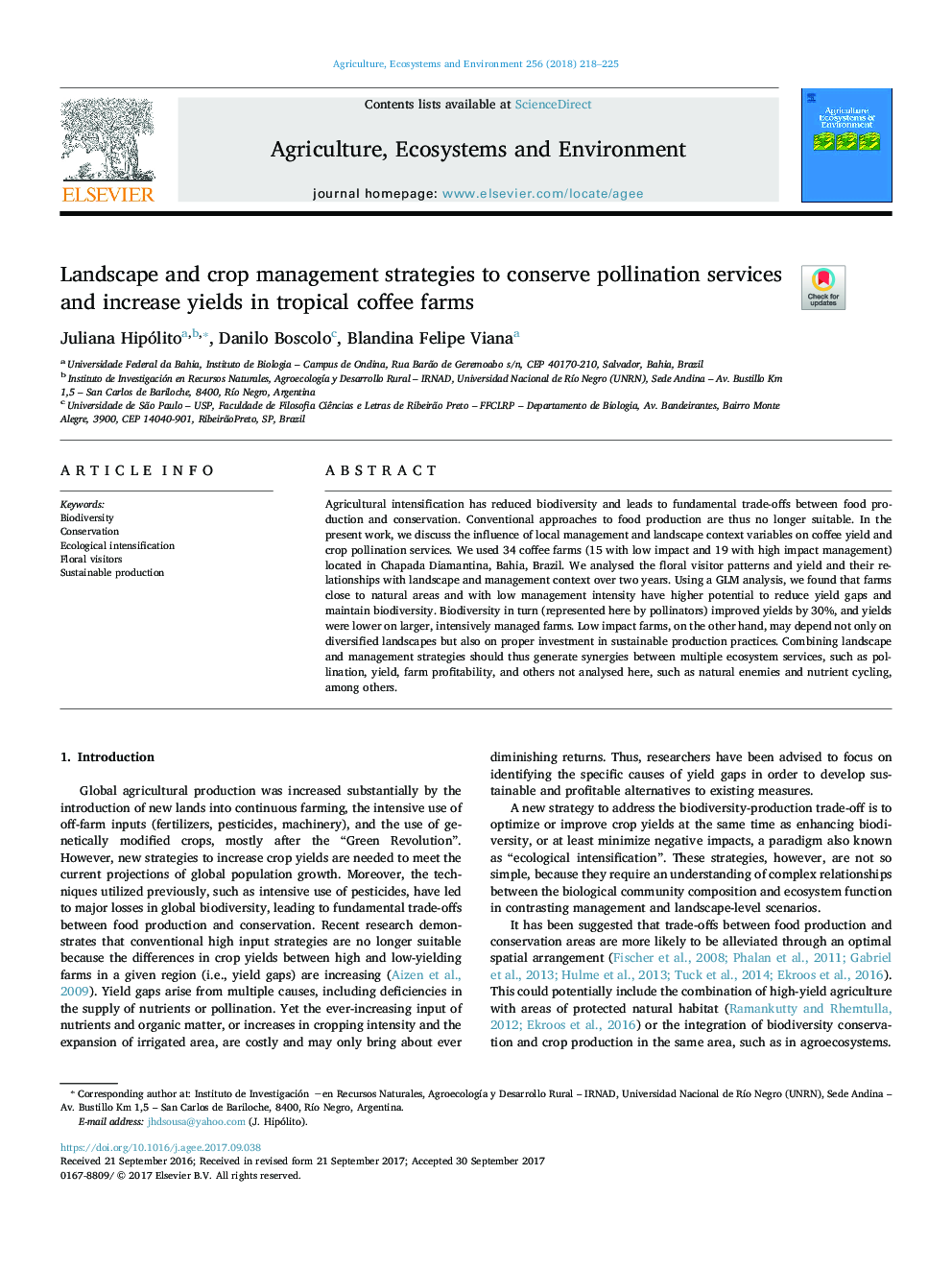| Article ID | Journal | Published Year | Pages | File Type |
|---|---|---|---|---|
| 8487176 | Agriculture, Ecosystems & Environment | 2018 | 8 Pages |
Abstract
Agricultural intensification has reduced biodiversity and leads to fundamental trade-offs between food production and conservation. Conventional approaches to food production are thus no longer suitable. In the present work, we discuss the influence of local management and landscape context variables on coffee yield and crop pollination services. We used 34 coffee farms (15 with low impact and 19 with high impact management) located in Chapada Diamantina, Bahia, Brazil. We analysed the floral visitor patterns and yield and their relationships with landscape and management context over two years. Using a GLM analysis, we found that farms close to natural areas and with low management intensity have higher potential to reduce yield gaps and maintain biodiversity. Biodiversity in turn (represented here by pollinators) improved yields by 30%, and yields were lower on larger, intensively managed farms. Low impact farms, on the other hand, may depend not only on diversified landscapes but also on proper investment in sustainable production practices. Combining landscape and management strategies should thus generate synergies between multiple ecosystem services, such as pollination, yield, farm profitability, and others not analysed here, such as natural enemies and nutrient cycling, among others.
Related Topics
Life Sciences
Agricultural and Biological Sciences
Agronomy and Crop Science
Authors
Juliana Hipólito, Danilo Boscolo, Blandina Felipe Viana,
